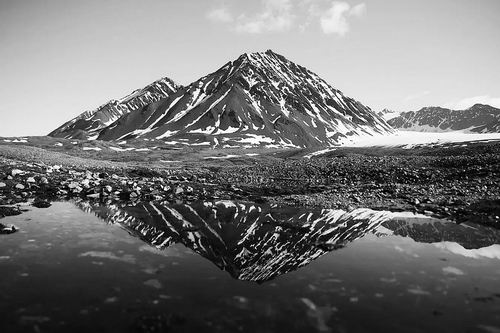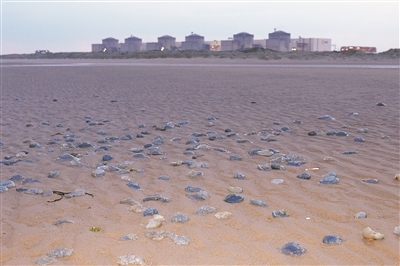

Svalbard experienced record high temperatures in the summer of 2024. Image credit: Shutterstock
A study published in the Proceedings of the National Academy of Sciences of the United States on August 18 showed that six consecutive weeks of record high temperatures in the summer of 2024 led to a record amount of ice melt in the Arctic Svalbard Archipelago. By the end of this summer, 1% of the land ice on the archipelago had disappeared, which was enough to raise the global sea level by an average of 0.16 mm.
“It’s quite astonishing,” says Thomas Schuler of the University of Oslo in Norway. “It’s not an insignificant record; the amount of ice melt is almost double the previous record.”
More than half of Svalbard is covered in ice. Winter snowfall adds to the ice volume, while glaciers flowing into the ocean and summer surface melt contribute to its loss. Schuler's research team has been estimating changes in the archipelago's total ice mass using a combination of field observations, satellite data, and computer modeling.
Since 1991, the average annual summer ice loss has been less than 10 billion tons. However, four of the past five years have set new records for summer ice loss. The research team estimates that last summer a total of about 62 billion tons of ice was lost, almost all of which was due to surface melt rather than glacier discharge into the sea.
Schuler and his colleagues measured a monitoring site in the summer of 2024 and found that the ground there rose by 16 millimeters due to ice loss, which was consistent with their estimates.
The anomalous melt was driven by record high temperatures, with average temperatures reaching 11 degrees Celsius in August last year, compared to the average of about 7 degrees Celsius in recent decades. This extreme event was the result of warming oceans and a persistent weather pattern that brought warm southerly winds and significantly increased global warming.
While such extreme summer temperatures are uncommon currently, climate models suggest they will become more common as the planet continues to warm. In fact, even under a low-emissions scenario, more than half of summer temperatures between now and 2100 could exceed this level.
Schuler's team has not yet attempted to estimate the amount of ice loss under different emissions scenarios. Winter snowfall is expected to increase slightly as atmospheric moisture increases, but not enough to offset the significant losses from summer melt.
Related paper information: https://doi.org/10.1073/pnas.2503806122
(Original title: "Ice melting in an Arctic archipelago raises global sea levels by 0.16 mm")
- aoKYdZQJK08/20/2025
